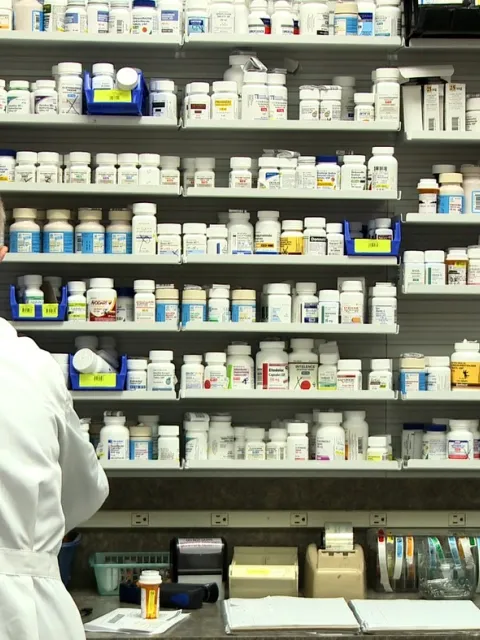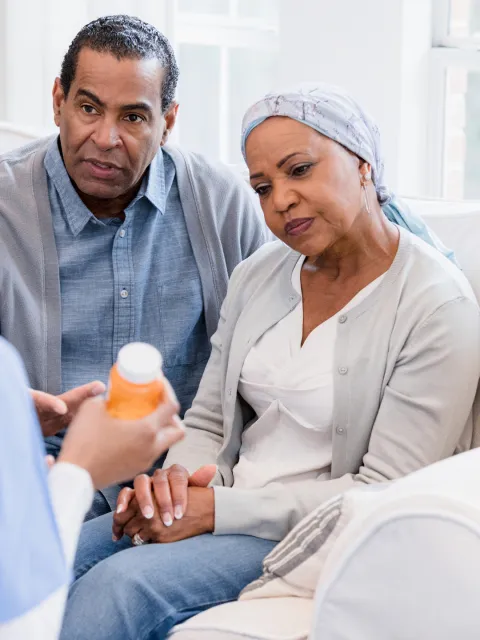UICC welcomes UN declaration on antimicrobial resistance: a positive step for cancer care
The UN aims to reduce AMR-related deaths by 10% by 2030 and ensure 60% of countries have funded action plans. This milestone helps safeguard essential cancer treatments against AMR.

Cary Adams, CEO of UICC and Ingrid Stenstadvold Ross, Secretary-General of the Norwegian Cancer Society at the high-level meeting in New York.
At the 79th United Nations General Assembly (UNGA) high-level meeting on antimicrobial resistance (AMR) on 26 September in New York, global leaders made a significant commitment to addressing the growing threat of AMR, setting clear targets, including reducing AMR-related deaths by 10% by 2030.
This development is particularly important for cancer patients, as AMR severely impacts cancer care by rendering essential treatments ineffective.
"The declaration is a crucial step forward in protecting cancer patients worldwide. AMR poses a significant threat to cancer care, and we are pleased to see world leaders recognise this in their commitment. Our work, alongside UICC member organisations, has been instrumental in raising awareness about this issue and ensuring it remains a global priority."
– Dr Sonali Johnson, UICC Head of Knowledge and Advocacy
The political declaration, which mentions cancer twice, emphasises the critical link between AMR and cancer treatment.
Cancer patients often rely on antibiotics and antifungals to manage infections, especially when undergoing treatments such as chemotherapy, which weakens their immune systems. The rise of AMR threatens to make these treatments riskier and less effective.
The declaration also includes a target for at least 60% of countries to have funded national action plans on AMR by 2030, representing a positive step towards safeguarding cancer care.
Podcast with Malin Grape
In this latest edition of the Let’s Talk Cancer podcast, UICC’s CEO Cary Adams welcomes Malin Grape, Sweden’s – and the world’s – first Ambassador on AMR, working to counteract AMR and its consequences in the EU and internationally.
Sustainable national financing and enhanced international cooperation will be key in protecting cancer patients from the escalating risks posed by AMR.
The involvement of UICC and its members in the lead-up to the high-level meeting was crucial. Through advocacy efforts at the multi-stakeholder meeting in May and participation in side events, UICC and its members, such as the Norwegian and Swedish Cancer Societies, succeeded in ensuring that cancer was included in the political declaration.
Together, they emphasised that without targeted action, modern cancer care would be severely compromised, with many cancer therapies rendered ineffective. Cancer care also featured prominently in 'Lifeline', an initiative endorsed by Dame Sally Davies, the UK Special Envoy on Antimicrobial Resistance, which reinforced UICC’s message on the critical importance of addressing AMR for better cancer care.
During the UNGA meeting in New York, UICC hosted a side event that brought together stakeholders from the cancer and NCD communities, healthcare professionals, policymakers, and researchers. The discussion focused on how the cancer community can play a pivotal role in implementing the strategies outlined in the declaration and aligning the fight against AMR with the needs of cancer patients.
UICC, its member organisations, and other key stakeholders, including the AMR community, will continue to work closely with global health bodies to ensure these commitments are upheld, aiming to secure better outcomes for cancer patients globally.
Click here for more information about AMR and the impact on cancer care
Last update
Monday 04 November 2024
